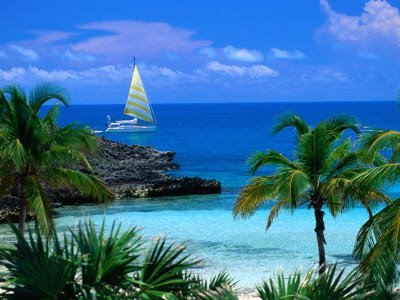
So you think your boat is all safely buttoned up for the winter, tucked safely away in your backyard or driveway? Think again.
In Houston Texas, thieves stole four boats in just five days, stealing electronics, fishing equipment and other items. Even more disturbing, all of the boats were kept right behind the owners’ homes. Boat owners are a trusting lot and while one would not think of leaving the house with all the doors and windows open, boats are often left wide open and unsecured, equipped with all sorts of small and valuable accessories that can easily end up on eBay.
Boats are also so easily transportable, they’re particularly susceptible to theft. Each year, insurance claims for theft losses cost the industry and consumers millions. While some boat thefts are the work of sophisticated rings that target a specific type of boat, others are isolated crimes of opportunity by petty thieves taking small, but valuable, equipment.
Not surprisingly, Florida is the number one state for boat theft with 1,478 boats reported stolen in 2005 and 1,233 stolen in 2006, through Sept. 30, according to the National Insurance Crime Bureau, a non-for-profit organization of insurance companies that compiles reports of stolen boats, cars and other items. Texas is therd in the nation with fur hundred boat thenfts and four thoudand eight hundred and ninety one thefts reported from boats.
According to NICB, 6,849 boats were stolen nationwide through Sept. 30, and a total of 8,795 boats were stolen in 2005. Most of the top 10 states for stolen boats are year-round boating states such as Florida, Texas, California and other southern states, where there are more boats available to thieves as well as more homes, marinas and storage facilities that thieves can target (see chart).On a positive note, law enforcement agencies and prosecutors are taking boat theft seriously and making headway in arresting organized rings of criminals who often move boats across state lines for resale.
“This can’t happen to me” you say. Well guess again. What can we as boat owners do to help protect ourselves? Well we caqn do the following.Engrave all valuables including electronic equipment, outboard engines, radios, loose gear, etc. with the owner’s name, home port, state driver’s license or identification number, and the boat’s hull identification number.
Attach inverted, strong hasps and padlocks to all hatches and secure lockers with non-removable hasps and hinges and lock with strong padlocks. Remove all portable valuables from your vessel, thereby eliminating possible targets of the thief. Don’t leave radios, binoculars, cameras or laptops on board. Maintain an inventory list that includes all boat gear with the name, model, serial number, manufacturer, and description of each item. Digital images or photos of your gear could also go into this list. Never leave keys aboard a boat, even in a “hidden place.”
Any seasoned burglar knows all the spots to look. Don’t leave ownership papers on board the boat. Over night stays at a marina ,even one with good security you should check for one with locked gates and other barriers to keep both unauthorized pedestrian and vehicle trafficaway from the docks. Signs should be posted that clearly state marina regulations and access limits.Access to boats should be limited only to owners and other authorized persons. Look for one with good lighting. Lighting should be focused on access points and boat docks, security cameras are even better. As a boat owners you should get acquainted with their dock side neighbors and report suspicious “visitors” and activities.
When you leave your boat on a trailer away from your own watchful eyes you should think of removing the tires. As an added precaution against theft, be sure to remove the hub nuts and store them with the tires. Keeping your boat out of sight is less tempting to theives. If the boat has to stay in the driveway, don’t park it facing the street. Thieves may carry coupler devices that can be quickly attached to your trailer.smaller outboards should be taken off and stored in the garage along with your seats, batteries, electronics and fishing equiptment in side, they’ll hold up better when stored indoors as well.
Lock your wheels to the trailer. A length of heavy chain, or cable, run through each wheel and around the axle or trailer frame is a great deterrent to theft of the trailer or your wheels. Also, lock your spare tire. These few and simple tips could possible save you the boat owner thousandsof hard earned dollars. Even a small theft from a high performance craft can result in a expensive lesson that should’nt haver to be learned the hard way. Takes care of your equiptment and it will be there to take care of you. Remember spring is around the corner and we all want out big boy toys to be there when we’re ready to play so until next week keep only what you will eat and release the rest to fight again.
Mike Harber







